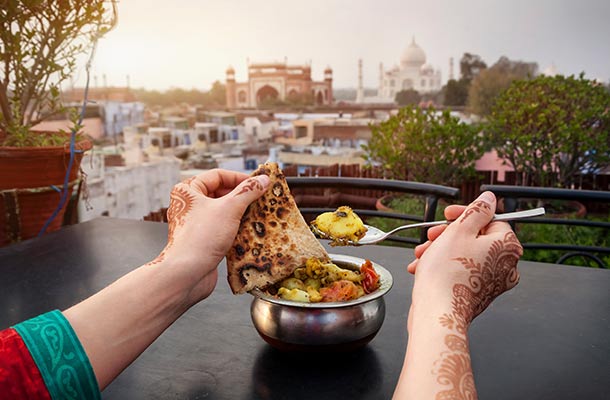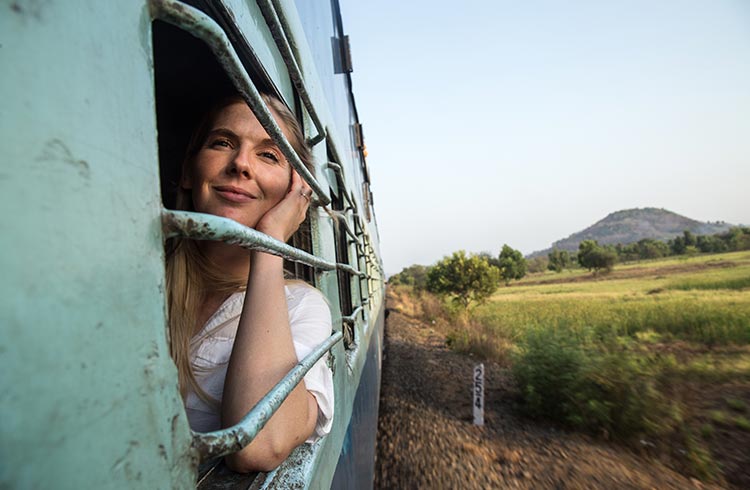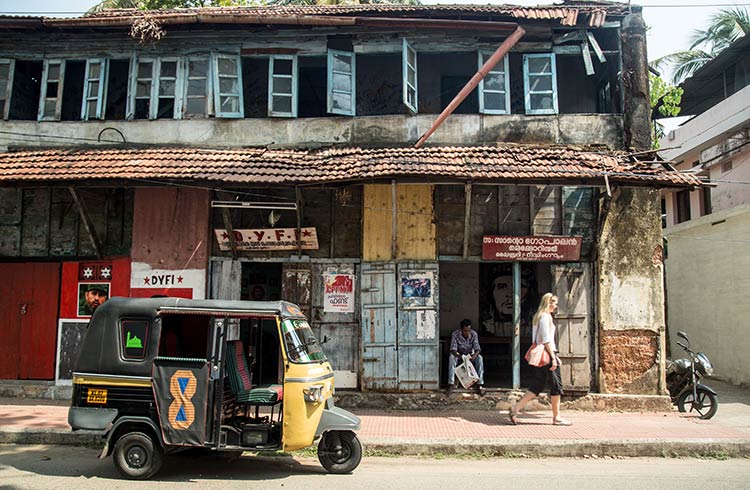How to Avoid Delhi Belly: Tips to Stay Healthy in India
The dreaded Delhi belly. It's going to take a seriously good hygiene routine to avoid India's most gut wrenching illness, but get started with these tips.
 Photo © iStock/byheaven
Photo © iStock/byheaven
Unless you have an absolutely iron clad stomach, inevitably you will fall slightly ill on your travels through India.
Even locals returning from abroad become ill after eating India's food. Their bodies need to re-adjust to the food, bugs, climate and sanitation conditions.
Travel vaccinations for India
Technically no vaccinations are required for entry into India - except for yellow fever if you are coming from an infected area such as Africa.
That being said, Hepatitis (both A and B, depending on your individual circumstances), meningitis and typhoid shots are highly recommended, as well as a booster for tetanus.
Can I drink the tap water in India?
If there's one rule you take away from this article, it should be this: tap water is not safe for drinking in India. Ever.
Some establishments throughout India have water filters or purifiers installed, in which case the water may be safe to drink. However, bottled water is always your best bet – but remember to always check the seal. To avoid adding to the plastic pollution issue, carry water purification tablets, boil water for atleast one minute before drinking or use a water bottle with a built in filtration system, like Grayl.
Avoid using tap water when brushing your teeth, and remember not to drink the water while showering. Keep your mouth closed while you're washing away the dirt of the day.
Even a salad that has been rinsed and has water on it, or drinks with ice cubes, should be avoided or approached with extreme caution.
If in doubt, don't eat the salad, and don't drink the drink if it has ice cubes.
Unless of course you want to spend most of your holiday getting well acquainted with the bathroom of your hotel.
Fruits that can be peeled such as apples and bananas, as well as packaged snacks are always a safe option. Carry a small bottle of hand sanitiser in your daypack so you can keep your hands clean.
Diarrhea is common, and can have many different causes. Bring a standard first-aid kit, plus extra over-the-counter medicine for diarrhea and stomach upset.
A rehydration kit can also be helpful. Remember the salt/sugar/water ratio for oral rehydration: 1 tsp salt, 8 tsp sugar, for 1 litre of water.
Malaria in India
Malaria is endemic throughout India. The risk exists in all areas, including the cities of Delhi and Mumbai, and at altitudes of less than 2,000 metres in Himachal Pradesh, Jammu, Kashmir, and Sikkim.
However, the risk of infection is considered low in Delhi and Northern India.
It is wise to take an oral anti-malaria prophylactic medication during, and sometime after your stay.
Of course preventing yourself from getting mosquito bites is crucial, so remember to cover up during both night and day, and use plenty of insect repellent – preferably one that contains no more than 35% of the chemical DEET.
In fact the famous gin-and-tonic was invented in British colonial India because tonic water contains quinine, a prophylactic against malaria. That's what gives it it's distinctive bitter taste.
The gin was added to make it more palatable. Not that we're suggesting you spend your entire stay tipsy on G&T's!
Other health issues
Are you starting to get a bit scared?
Don't be, because we haven't even talked about the many venomous snakes.
In the (very) unlikely event you are bitten, try to note the markings of the snake so it can be identified, and the correct antidote given.
In any event, of a snake bite, you should immediately seek medical care.
And obviously getting vaccinations and blood transfusions in low quality hospitals will increase your risk of contracting HIV/AIDS, and this rule certainly applies to most government clinics throughout India.
In case of an emergency, you should carry your own syringes and other medical gear in your first-aid kit.
Also India has the highest rate of rabies in the world. So don't go making friends with every stray animal you come across.
On your travels through India, it's better to err on the side of caution, because there's nothing worse than trying to find a doctor in a hot foreign city.
If you travel smart and be cautious, you're likely to get away with just a touch of Delhi belly.
Related articles
Simple and flexible travel insurance
You can buy at home or while traveling, and claim online from anywhere in the world. With 150+ adventure activities covered and 24/7 emergency assistance.
Get a quote

No Comments